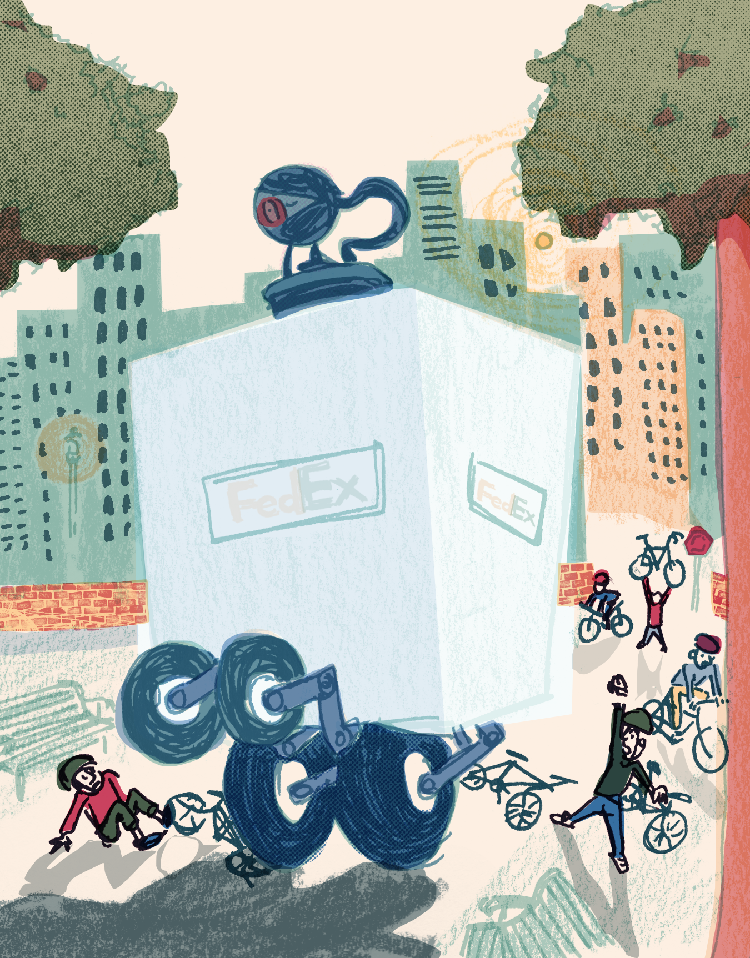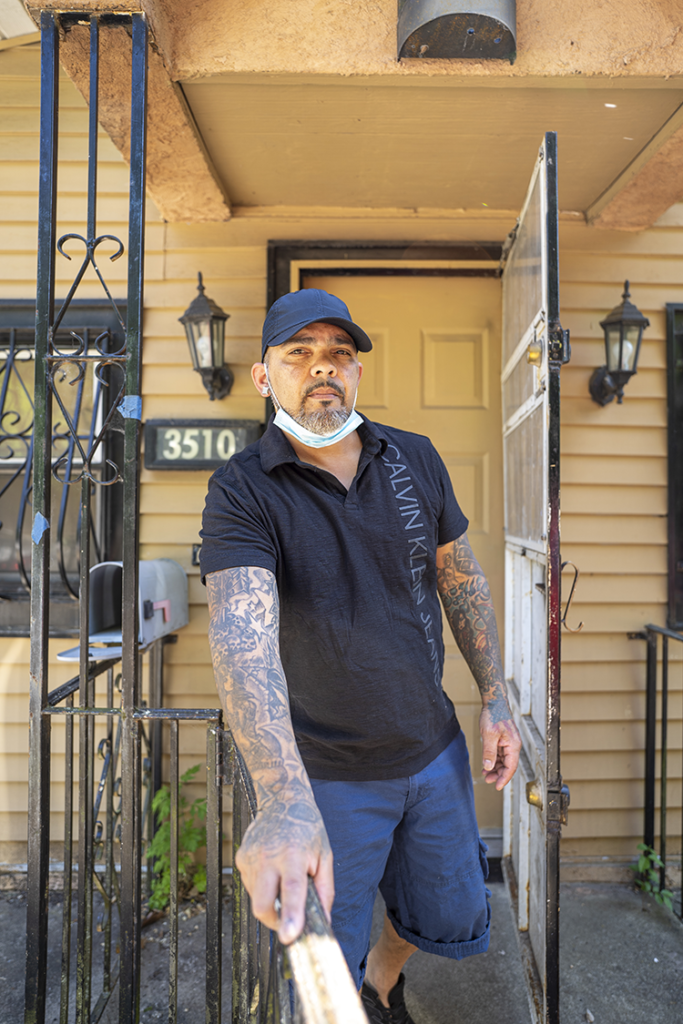While it seems like just yesterday, it was six years ago that a world-famous hitchhiking robot was smashed in Philadelphia.
The robot—dubbed hitchBOT—was originally created by a Canadian research team. It “could carry a limited conversation” and “took a photo every 20 minutes,” according to the Associated Press. HitchBOT had previously made its way across Germany, the Netherlands and Canada. Its next trip was to be around the U.S., but after making its way down from Boston, it was vandalized overnight in Philadelphia, just 300 miles into its American journey. Its battery was never found.
To me, this was a lesson about allowing robots to occupy pedestrian space. But it appears to be one our state has already forgotten.
Last year state lawmakers approved and passed a bill supported by FedEx that allows so-called “personal delivery devices,” or PDDs, on sidewalks in Pennsylvania. PDDs are automated, wheeled devices that deliver items to consumers and businesses.

The Pennsylvania General Assembly passed the bill quickly, with most Democrats opposed, and created one of the most lax PDD laws in the entire country. Operating on sidewalks, PDDs are allowed the same rights as pedestrians. They can travel up to 12 miles per hour and carry 550 pounds of cargo. (If that sounds heavy to you, that’s because it is; the State of Washington’s PDD law allows for cargo up to 120 pounds.) Through 2022 the PDDs must have operators within 30 feet of their travel. But after that they’re free to roll about on their own.
This legislation had a lot of money behind it, there wasn’t much debate over it and there was little fanfare to stop the legislation until the day before it was signed. Still, the Bicycle Coalition of Greater Philadelphia and BikePGH signed onto a letter, alongside accessibility groups, opposing the robots, that was ultimately ignored as Governor Tom Wolf signed the bill into law.
The quick passage of the legislation left several issues unaddressed, many of which are being left up to PennDOT to decide. The pro-business legislation could lead to many problems on crowded sidewalks in the state. One of these PDDs ending up like hitchBOT is the least of our worries.
People Over Robots
As it stands now, Pennsylvania’s delivery-robot law prioritizes machines over human beings. Since they are classified as pedestrians, PDDs are not banned from multi-use trails for deliveries. While it seems unlikely a multi-use trail would be part of a delivery route, more trails are being built in Philadelphia and throughout the state, and they are being done so in a way that connects people to businesses (like the Delaware River Trail extension, which goes directly to the Rivers Casino in Fishtown).
PennDOT should ban these 550-pound PDDs on trails—that’s a given. But what’s more concerning is that legislation is being considered that would ban e-bikes weighing more than 100 pounds from multi-use trails—including electric cargo bikes with children in tow. People on bicycles and e-scooters are additionally banned from riding on sidewalks at the same speed as PDDs.
Local Control Over PDDs
The legislation in question does not specify what, if any, control municipalities have when setting guidelines for PDDs on sidewalks. You might think a robot delivery service would have all sorts of room on the wide sidewalks alongside JFK Boulevard or Market Street, but combine that with rush hour foot traffic and you’re in for a bad time—especially if one of these things is going 12 miles per hour, which is about as fast as I bike to work.
An ordinance is required to do almost anything in Philadelphia, especially on public property like a street or sidewalk. But it’s unclear if a local ordinance is required to allow a company to begin utilizing PDDs, or if a law can be passed that bans them. This is another rule that will have to be set by PennDOT.
How Autonomous Are We Talking?
These vehicles, like FedEx’s Roxo, the same-day-delivery robot, are built to go out on their own, similar to the Killbots in the 1986 horror comedy “Chopping Mall.” But how much function do we expect Roxos to have? That’s unknown, too.
Sure, it may be able to get out of the way of people walking, but what about people in wheelchairs, dogs and children? Right now, the Bloomfield neighborhood of Pittsburgh is set to undergo a six-month robot pilot, which, as of now, doesn’t seem to have many answers for concerned residents.
The Democratic state senators and representatives who opposed the law last year often referred to these new robots as “job killers” and were backed by teamsters in their opposition.
In addition to the obvious safety and space concerns posed by the robots, the delivery cyclists that have kept us all fed and safe at home around Philadelphia are potentially at risk with this legislation.
Food delivery apps have boomed in the past year, keeping many bike messengers employed during the pandemic and allowed others to take on part-time jobs on their own schedule. Those are the sorts of jobs that would be affected quickly if these robots were allowed to operate in Philadelphia—but they aren’t the only ones.
While using robots for deliveries may seem like a convenient way for companies to increase profits—we have to ask: what price will Pennsylvania’s citizens have to pay
as a result?









